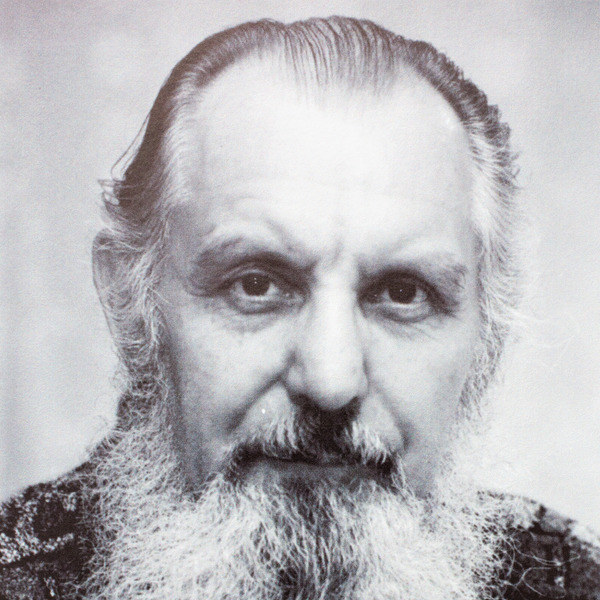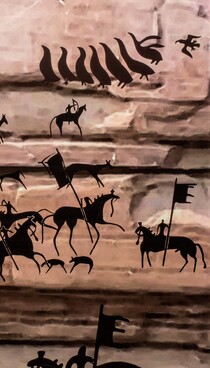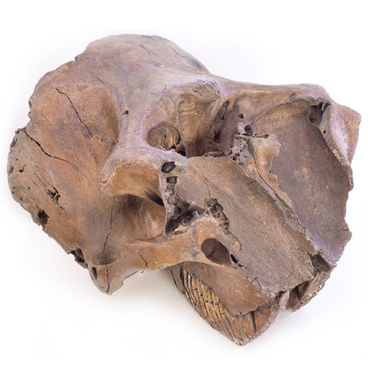This is a photo of Vladimir Svinin, a Siberian archaeologist, historian and orientalist. He worked as the director of the Irkutsk Regional Museum of Local History from 1956 to 1970.
Vladimir Svinin was born in 1936 in the Ust-Orda village located in the Ekhirit-Bulagatsky district of the Irkutsk region. He came from a family of workers and was engaged in manual labor since childhood: Svinin was working as a shepherd in the village, and then helped with agricultural machinery and at the same time was studying at school. Moreover, the future archaeologist was working as a correspondent in the newspaper ‘Lenin’s Banner’ — he was writing news reports and poems.
In 1951, when Svinin was 15 years old, he got a job at the Ust-Orda District Museum of Local History. He met with famous Siberian archaeologists: Pavel Khoroshikh, Alexey Okladnikov and Mikhail Gerasimov during this time period. Vladimir Svinin was fascinated with excavations, Paleolithic finds and the stories of the anthropologists, and after finishing school, he decided to enter the Historical and Philological Faculty of Irkutsk State University.
Svinin began to work at the Regional Museum of Local History, when he was a student. He went to work in the city of Zima city for a short time after graduating from the university, but then he returned to Irkutsk and entered a postgraduate school to study by correspondence and took the position of the chief curator at the museum. Vladimir Svinin was appointed as director in 1965.
He defended his PhD thesis on the topic “Archeology of Lake Baikal” in 1970, under the supervision of a scientist and archaeologist Alexey Okladnikov and began teaching at Irkutsk University. However, Svinin continued to work with artifacts. He initiated the establishment of many museums in the city: the Decembrist Museum, the Museum of the History of Irkutsk, the “Taltsy” museum, the Irkutsk State University Museum and others.
Vladimir Svinin was training in Mongolia in 1974-1975. He created a department of Mongolian studies when he returned to Irkutsk University. The archaeologist worked as the deputy dean from 1975 to 1977. In total, Svinin had been worked at the university for 32 years, until 2002.
Vladimir Svinin was born in 1936 in the Ust-Orda village located in the Ekhirit-Bulagatsky district of the Irkutsk region. He came from a family of workers and was engaged in manual labor since childhood: Svinin was working as a shepherd in the village, and then helped with agricultural machinery and at the same time was studying at school. Moreover, the future archaeologist was working as a correspondent in the newspaper ‘Lenin’s Banner’ — he was writing news reports and poems.
In 1951, when Svinin was 15 years old, he got a job at the Ust-Orda District Museum of Local History. He met with famous Siberian archaeologists: Pavel Khoroshikh, Alexey Okladnikov and Mikhail Gerasimov during this time period. Vladimir Svinin was fascinated with excavations, Paleolithic finds and the stories of the anthropologists, and after finishing school, he decided to enter the Historical and Philological Faculty of Irkutsk State University.
Svinin began to work at the Regional Museum of Local History, when he was a student. He went to work in the city of Zima city for a short time after graduating from the university, but then he returned to Irkutsk and entered a postgraduate school to study by correspondence and took the position of the chief curator at the museum. Vladimir Svinin was appointed as director in 1965.
He defended his PhD thesis on the topic “Archeology of Lake Baikal” in 1970, under the supervision of a scientist and archaeologist Alexey Okladnikov and began teaching at Irkutsk University. However, Svinin continued to work with artifacts. He initiated the establishment of many museums in the city: the Decembrist Museum, the Museum of the History of Irkutsk, the “Taltsy” museum, the Irkutsk State University Museum and others.
Vladimir Svinin was training in Mongolia in 1974-1975. He created a department of Mongolian studies when he returned to Irkutsk University. The archaeologist worked as the deputy dean from 1975 to 1977. In total, Svinin had been worked at the university for 32 years, until 2002.



